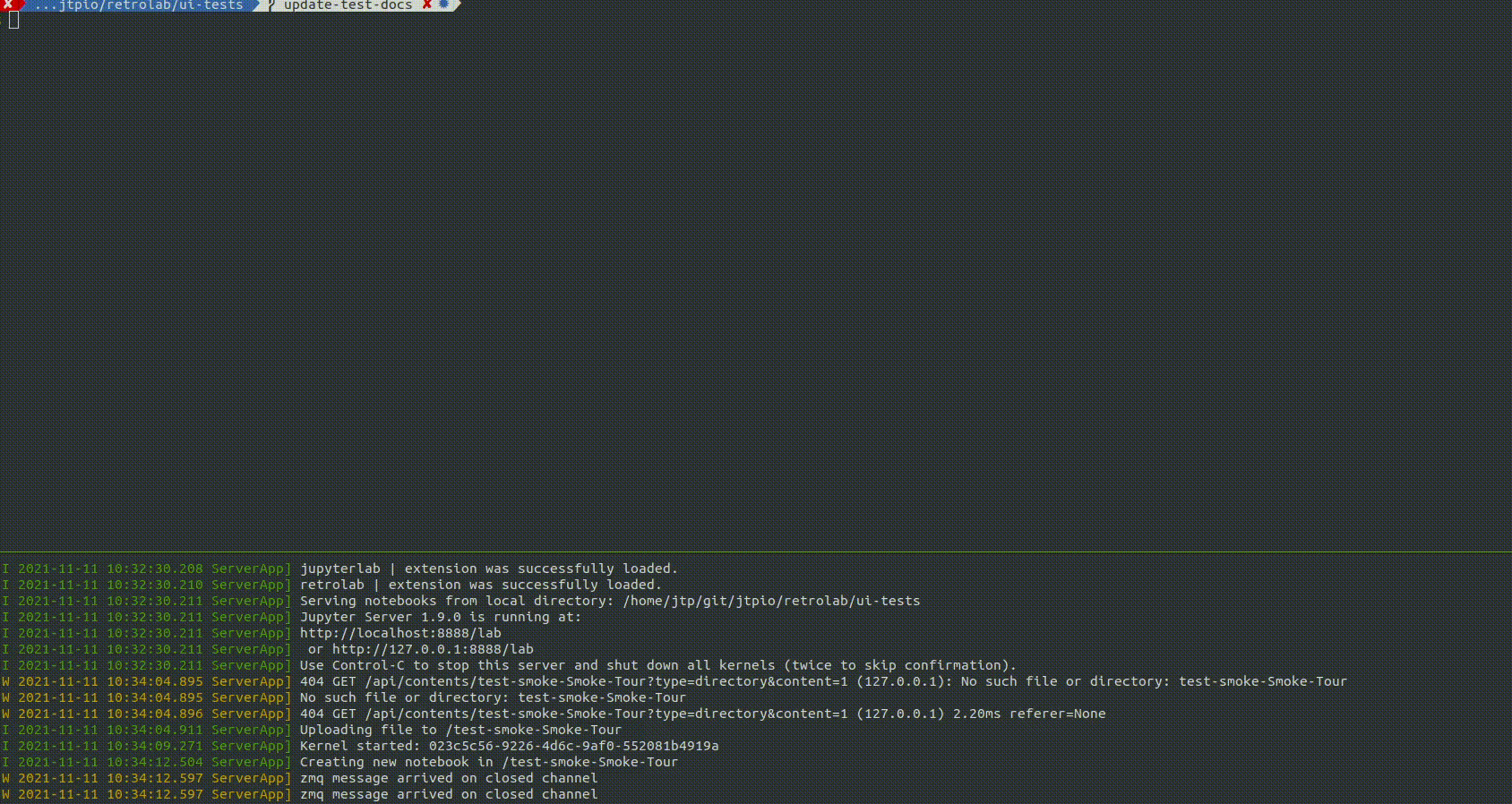# Contributing to Jupyter Notebook
Thanks for contributing to Jupyter Notebook!
Make sure to follow [Project Jupyter's Code of Conduct](https://github.com/jupyter/governance/blob/master/conduct/code_of_conduct.md)
for a friendly and welcoming collaborative environment.
## Setting up a development environment
Note: You will need NodeJS to build the extension package.
The `jlpm` command is JupyterLab's pinned version of [yarn](https://yarnpkg.com/) that is installed with JupyterLab. You may use
`yarn` or `npm` in lieu of `jlpm` below.
**Note**: we recommend using `mamba` to speed the creating of the environment.
```bash
# create a new environment
mamba create -n notebook -c conda-forge python nodejs -y
# activate the environment
mamba activate notebook
# Install package in development mode
pip install -e ".[dev,test]"
# Link the notebook extension and @jupyter-notebook schemas
jlpm develop
# Enable the server extension
jupyter server extension enable notebook
```
`notebook` follows a monorepo structure. To build all the packages at once:
```bash
jlpm build
```
There is also a `watch` script to watch for changes and rebuild the app automatically:
```bash
jlpm watch
```
To make sure the `notebook` server extension is installed:
```bash
$ jupyter server extension list
Config dir: /home/username/.jupyter
Config dir: /home/username/miniforge3/envs/notebook/etc/jupyter
jupyterlab enabled
- Validating jupyterlab...
jupyterlab 3.0.0 OK
notebook enabled
- Validating notebook...
notebook 7.0.0a0 OK
Config dir: /usr/local/etc/jupyter
```
Then start Jupyter Notebook with:
```bash
jupyter notebook
```
## Running Tests
To run the tests:
```bash
jlpm run build:test
jlpm run test
```
There are also end to end tests to cover higher level user interactions, located in the `ui-tests` folder. To run these tests:
```bash
cd ui-tests
# start a new Jupyter server in a terminal
jlpm start
# in a new terminal, run the tests
jlpm test
```
The `test` script calls the Playwright test runner. You can pass additional arguments to `playwright` by appending parameters to the command. For example to run the test in headed mode, `jlpm test --headed`.
Checkout the [Playwright Command Line Reference](https://playwright.dev/docs/test-cli/) for more information about the available command line options.
Running the end to end tests in headful mode will trigger something like the following:

### Updating reference snapshots
Often a PR might make changes to the user interface, which can cause the visual regression tests to fail.
If you want to update the reference snapshots while working on a PR you can post the following sentence as a GitHub comment:
```
bot please update playwright snapshots
```
This will trigger a GitHub Action that will run the UI tests automatically and push new commits to the branch if the reference snapshots have changed.
## Code Styling
All non-python source code is formatted using [prettier](https://prettier.io) and python source code is formatted using [black](https://github.com/psf/black)s
When code is modified and committed, all staged files will be
automatically formatted using pre-commit git hooks (with help from
[pre-commit](https://github.com/pre-commit/pre-commit). The benefit of
using a code formatters like `prettier` and `black` is that it removes the topic of
code style from the conversation when reviewing pull requests, thereby
speeding up the review process.
As long as your code is valid,
the pre-commit hook should take care of how it should look.
`pre-commit` and its associated hooks will automatically be installed when
you run `pip install -e ".[dev,test]"`
To install `pre-commit` manually, run the following:
```shell
pip install pre-commit
pre-commit install
```
You can invoke the pre-commit hook by hand at any time with:
```shell
pre-commit run
```
which should run any autoformatting on your code
and tell you about any errors it couldn't fix automatically.
You may also install [black integration](https://github.com/psf/black#editor-integration)
into your text editor to format code automatically.
If you have already committed files before setting up the pre-commit
hook with `pre-commit install`, you can fix everything up using
`pre-commit run --all-files`. You need to make the fixing commit
yourself after that.
You may also use the prettier npm script (e.g. `npm run prettier` or
`yarn prettier` or `jlpm prettier`) to format the entire code base.
We recommend installing a prettier extension for your code editor and
configuring it to format your code with a keyboard shortcut or
automatically on save.
Some of the hooks only run on CI by default, but you can invoke them by
running with the `--hook-stage manual` argument.